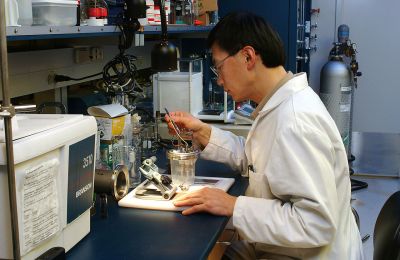Hydrogen and fuel cell technologies may represent a key enabling
technology for radio base stations (RBSs) powered by renewable energies
to see real market traction. The EU-funded project 'Demonstration
project for power supply to telecom stations through FC technology' (
FCPOWEREDRBS)
is clearly demonstrating this potential. With 15 RBS installations live
in Italy and 2 in Europe research centres, FCPOWEREDRBS is conducting
field trials to allow a complete technology assessment for this
promising, yet early market.
These units should demonstrate such performance in terms of start-up
time, reliability, durability and number of cycles that should qualify
them for quick market entry throughout the world.
Diesel generators are being displaced by new systems combining
renewable energy and proton exchange membrane fuel cells fuelled with
pure hydrogen. With such alternative fuelling solutions, FCPOWEREDRBS is
not only enhancing off-grid RBS performance but also decreasing cost of
ownership.
Several simulation activities helped define system specifications.
Focus was placed on evaluating the impact of the battery and the
photovoltaic pack sizes as well as of the variable weather on the system
output. A laboratory for benchmarking of fuel cell-powered RBSs was set
up, where also the first fuel cell system was tested. Furthermore,
researchers verified the impact of sudden radiation variations on each
sub-system.
FCPOWEREDRBS has developed a benchmark protocol for the fuel cell
technology that should be added to the available benchmark protocols,
providing a point of reference for final users.
The FCPOWEREDRBS project's proposed fuel cell solution reduces RBS carbon footprint and offers significant cost savings.

